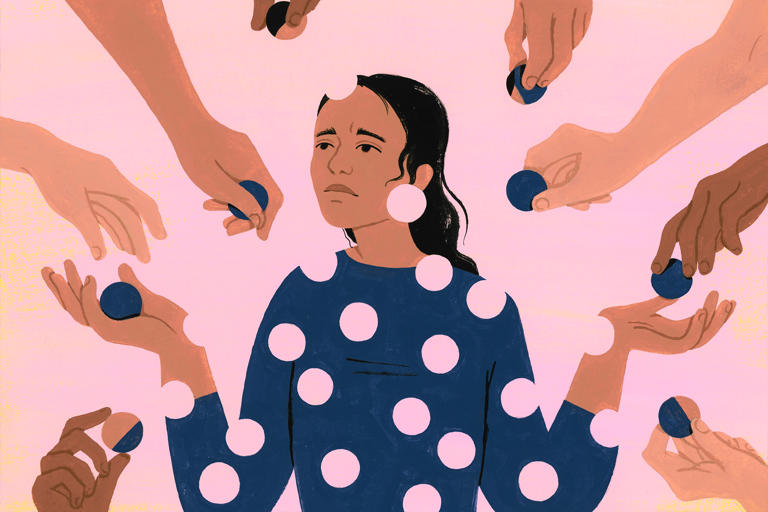
Most of us enjoy pleasing others. Research even suggests that "agreeableness," which is a personality trait linked with altruism and cooperation, can generate joy, boost confidence and foster social connections.
Sometimes, though, appeasing others comes at a cost. It can make us feel resentful, worn out and undervalued. These are warning signs of people-pleasing's dark side: chronic people-pleasing.
Chronic people-pleasing isn't a recognized diagnosis like depression or anxiety. But, it can still hurt your mental health. As a therapist, I have seen how chronic people-pleasing can be a pain point for some of my patients. It's something, however, that can be changed, especially when you understand more about it.
![]()
• Signs of chronic people-pleasing
Here are some signs of chronic people-pleasing:
![]()
• Why we become people pleasers
Chronic people-pleasing has many causes. A high desire for social approval and acceptance may play a role. This trait, called sociotropy, has also been linked with low self-esteem and rejection sensitivity. For example, one study of 321 individuals found a connection between sociotropy and beliefs such as "I am unlovable" and "It is important to be liked and approved by others." Thoughts like these may make some eager-pleasers more sensitive to depression and anxiety.
The need to please can also be an aftershock of "relational trauma." This is trauma that takes place within intimate relationships, especially with one's parents or caregivers.
For instance, I once worked with a patient whose father shamed him whenever he expressed sadness. "If you want to cry, I'll give you something to cry about," he was told. On other occasions, his dad (who had also been abused as a child) said, "I'm not in the mood to hear any of your stupid whining." As a result, my patient worked hard to be "good" by doing what he was told. "If people like you, they leave you alone," he told me.
This behavior is an example of a trauma response called "fawning," which is pleasing others to avoid real or perceived danger. It's an attempt to stay safe, especially when a "trauma trigger" arises. This could be a painful memory or interacting with someone who reminds you of the person who hurt you.
![]()
• How to manage people-pleasing
The impulse to please is often driven by a fear of loss. Perhaps you're afraid you'll lose someone's respect, affection or care. Or even worse, that you'll lose the relationship entirely.
Often, I encourage my patients to meet their fear with curiosity. Sometimes, I ask them: "What would you do if you weren't afraid?"
This can be an empowering way to tap into your desires. Identifying your needs puts you in a position to meet your goals, which is one step toward change.
Here are three more strategies to manage people pleasing:
Reaching out to trusted family and friends can be a lifeline. It allows you to find out how much people care, which can remind you that your needs and feelings matter, too.
Juli Fraga, PsyD, is a psychologist with a private practice in San Francisco.
(COMMENT, BELOW)


 Contact The Editor
Contact The Editor
 Articles By This Author
Articles By This Author